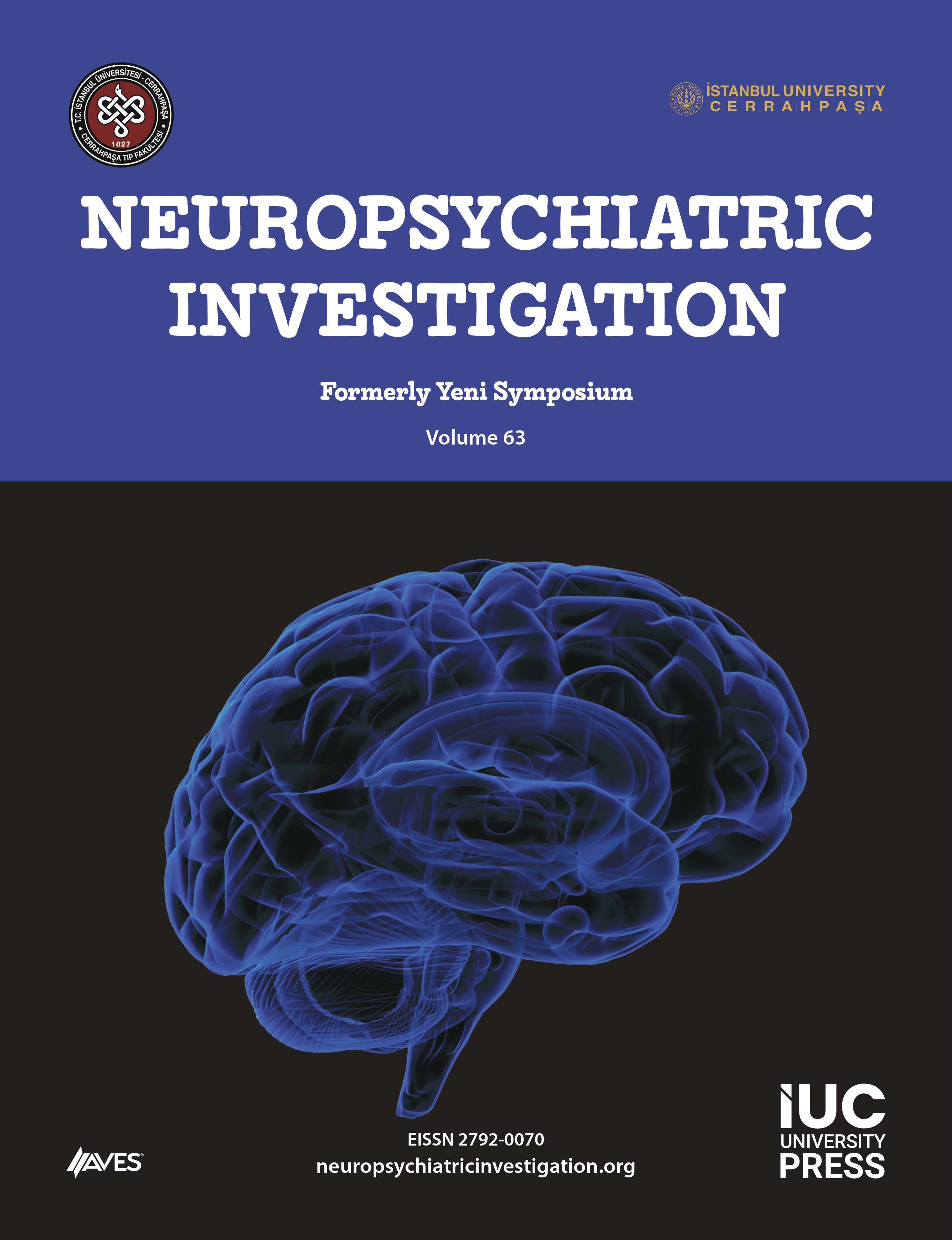Objective: The aim of this study is to reveal the relationship between the anxiety levels of children diagnosed with coronavirus disease 2019 and who are hospitalized and their parents’ levels of depression, hopelessness, anxiety, and perceived social support.
Methods: Childhood State-Trait Anxiety Inventory and Beck Depression Inventory, Beck Hopelessness Scale, State-Trait Anxiety Inventory, and Perceived Social Support Scale were applied. The control group consisted of 56 children hospitalized in the general pediatric service with the diagnosis of acute bronchitis, pneumonia, lower respiratory tract infection, and their accompanying parents.
Results: Children hospitalized with the diagnosis of coronavirus disease 2019 had significantly higher CSTAI scores and their parents’ BDI and STAI scores. In both groups, there was a positive significant relationship between the anxiety levels of the children and their parents’ depression, hopelessness, and anxiety levels.
Conclusion: With the pandemic, mental afflictions were inevitable in children, but studies examining the psychological effects of children and their parents who have been diagnosed with the disease and are hospitalized are limited. The findings of the study show that children hospitalized with the diagnosis of COVID-19 and their parents are more psychologically affected. This study can be a pioneer for more comprehensive
studies and rehabilitation studies.
COVID-19 Tanısı ile Yatan Çocuk Hastaların Kaygı Düzeyleri ile Ebeveynlerinin Depresyon, Umutsuzluk, Kaygı ve Algılanan Sosyal Destek Düzeylerinin İncelenmesi
Amaç: Bu çalışmada amaç COVID-19 tanısı ile hastane yatışı yapılmış çocukların kaygı düzeyleri ve ebeveynlerinin depresyon, umutsuzluk, kaygı ve algıladıkları sosyal destek düzeylerini inceleyerek arasındaki ilişkinin açığa çıkarılmasını sağlamaktır.
Yöntemler: COVID-19 tanısı ile yatmakta olan 97 çocuğa Çocuk Durumluk-Sürekli Kaygı Envanteri (ÇDSKE) ve yanlarında refakat eden ebeveynlerine Beck Depresyon Envanteri (BDE), Beck Umutsuzluk Ölçeği (BUÖ), Durumluk-Sürekli Kaygı Envanteri (DSKE) ve Çok Boyutlu Algılanan Sosyal Destek Ölçeği (ÇBASDÖ) uygulanmıştır. Kontrol grubunu ise genel pediatri servisinde akut bronşit, pnömoni, alt solunum yolu enfeksiyonu tanılarıyla yatan 56 çocuk ve refakat eden ebeveynleri oluşturmuştur.
Bulgular: COVID-19 tanısı ile yatan çocuklarda ÇDSKE puanları, ebeveynlerinde ise BDE, DSKE puanları anlamlı derecede yüksektir. Her iki grupta da çocukların kaygı düzeyleri ile ebeveynlerinin depresyon, umutsuzluk ve kaygı düzeyleri arasında pozitif yönde anlamlı ilişki mevcuttur.
Sonuç: Pandemi ile birlikte çocuklarda da ruhsal etkilenmeler kaçınılmaz olmuştur ancak hastalığa yakalanan ve hastane yatışı olan çocuk ve ebeveynlerindeki ruhsal etkilenmeyi inceleyen çalışmalar sınırlıdır. Çalışmanın bulguları COVID-19 tanısı ile hastanede yatan çocuklarda ve ebeveynlerinde daha fazla ruhsal etkilenme olduğunu göstermektedir. Bu çalışma yapılacak daha kapsamlı çalışmalar ve rehabilitasyon çalışmaları için öncü niteliğinde olabilir.
Cite this article as: Söğütlü Y, Söğütlü L. Investigation of anxiety levels of inpatients with a diagnosis of COVID-19 and depression, hopelessness, anxiety, and perceived social support levels of their parents. Neuropsychiatr Invest. 2021;59(3):70-75.




.png)